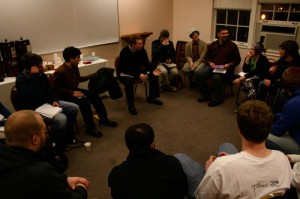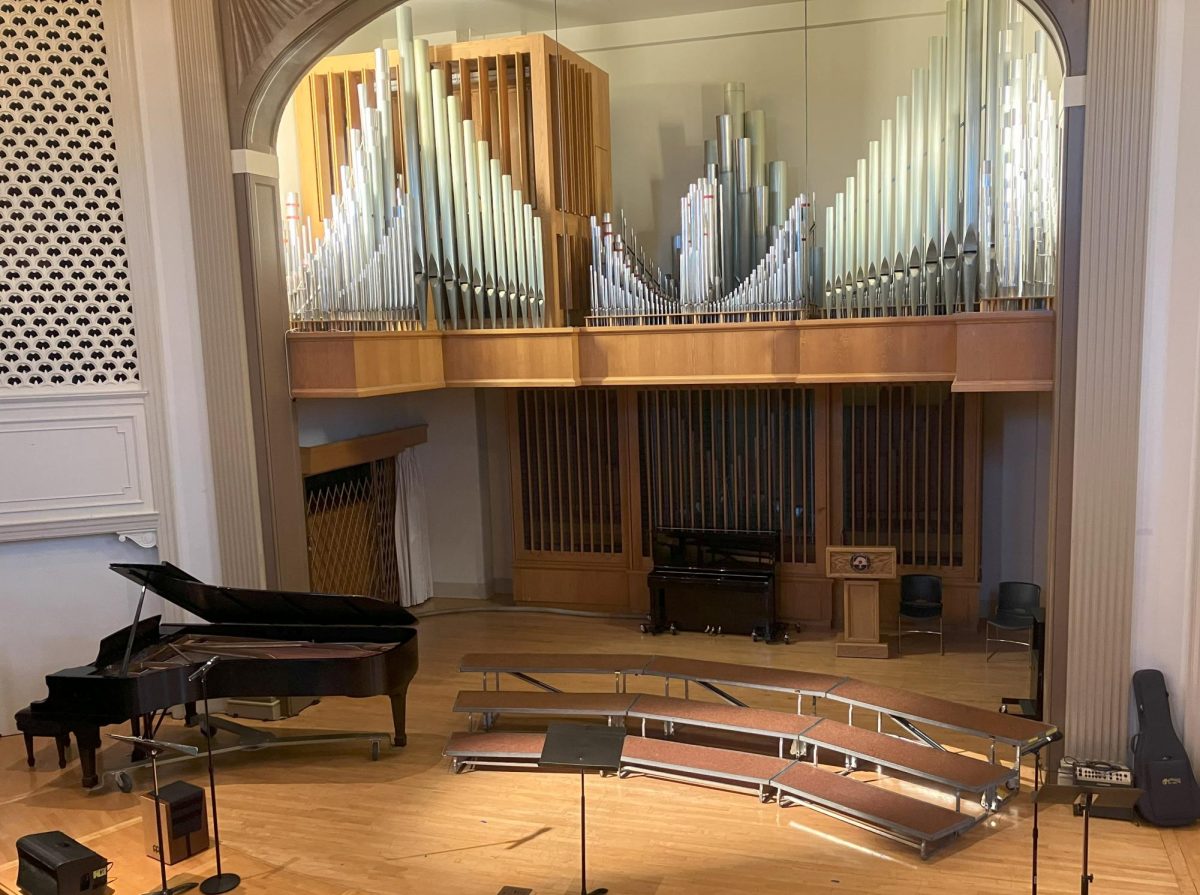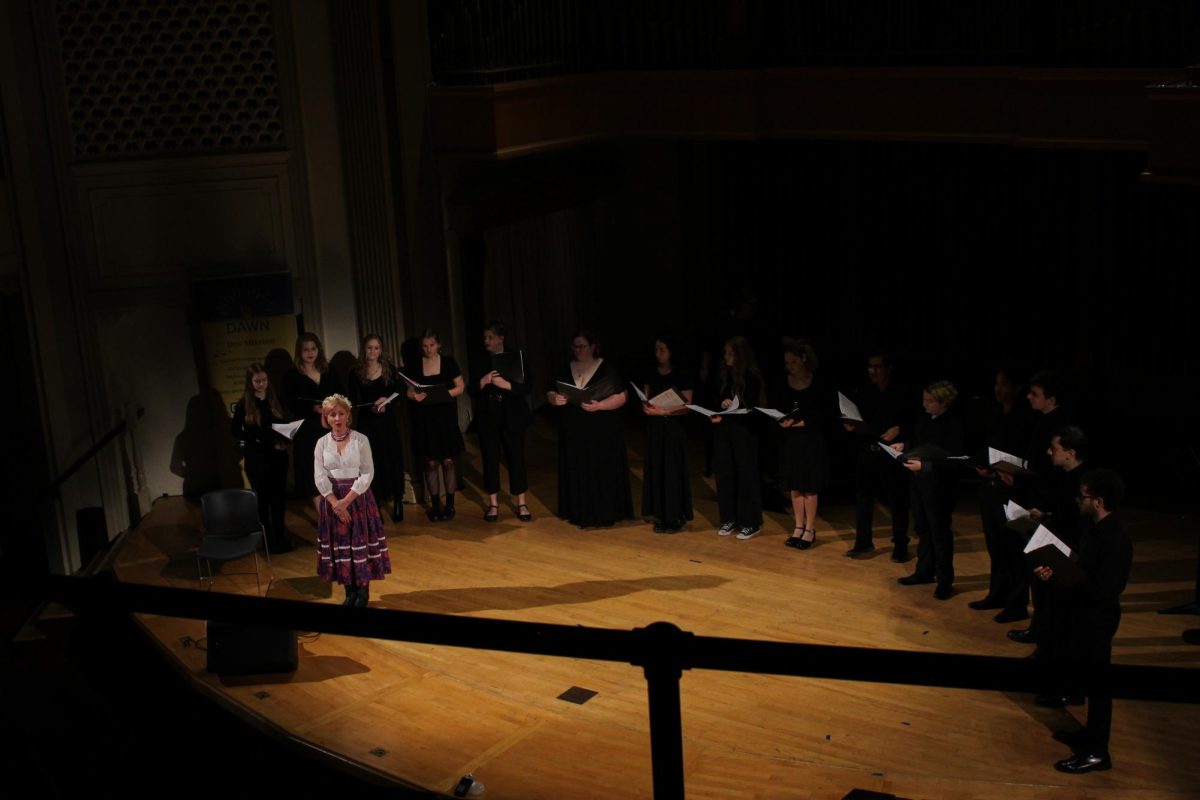
Amber McKenna
Editor in chief
Students and professors gathered for a discussion event on the topic of sustainability and environment solutions Feb. 16, sponsored by Greenfield.
The event at Linfield was one of many held across the nation under the name of “National Teach-In on Global Warming.” Last year was the first time the club held the event.
According to the National teach-in Web site, more than one million people participated in similar events this month. The Linfield teach-in featured panelists from different areas of study and organizations relating to aspects of sustainability.
Linfield faculty and staff on the panel included Associate Professor of Chemistry Brian Gilbert, Associate Professor of Economics Eric Schuck, Assistant Professor of Political Science Pat Cottrell, Assistant Professor of Sociology Rob Gardner, Superintendent of Environmental Services Tim Stewart, Administrative Services Manger Terry Wymore, Director of Capital Planning and Development John Hall and Bill Masullo, food services general manager.
“We wanted to have a diversity of perspectives,” junior Duncan Reid, president of Greenfield, said.
Members from the Yamhill County community involved included Darol Funk of Western Oregon Waste, Environmental Coordinator Emily Auckland, Green Builder/Cool Mac Member John Mead, community activist for Bumpercrop Alternative Fuel Josh Ferguson, and Katie and Casey Kullah from Oakhill Organics.
Panelists stressed the importance of realizing that global warming and sustainability are both topics that cross and affect all disciplines in different ways.
Gardner said that from a sociological standpoint one must redefine what is important on a personal level and understanding why we want the things we want.
From a political perspective, Cottrell said pressuring politicians to take action for sustainable energy is one of the most important things a citizen can do.
Audience members were invited to write their own questions, which were asked to the panelists. Afterward, attendees broke into groups with panelists who led discussions on various topics, including energy and conservation, food and agriculture, alternative transportation, politics of climate change and recycling and waste management.
During the weekend leading up to the teach-in, Greenfield held a concert featuring the Northern California band Acufunkture, a dance and a discussion group. Reid said funding from the Linfield Activities Board and the ASLC Activities Council made these events possible.
Greenfield’s next endeavor is a petition, presently circulating the student body, aiming to raise student body fees in order to create a renewable energy and sustainability fund. Club members got the idea by researching what similar colleges were doing. The fee would be $10 per student each semester and will support renewable energy options and grants for projects related to sustainability. Reid said the fund will help promote environmentally friendly ideas by providing students the resources needed to implement projects.
“Once we, the students, start this, it shows commitment and will open up avenues,” Reid said.
The grants would be open for both students and facility services, and the fund would be managed by the Department of Capital Planning and Development. If the petition is approved by the student Senate, the matter will be voted on within the coming ASLC election.






